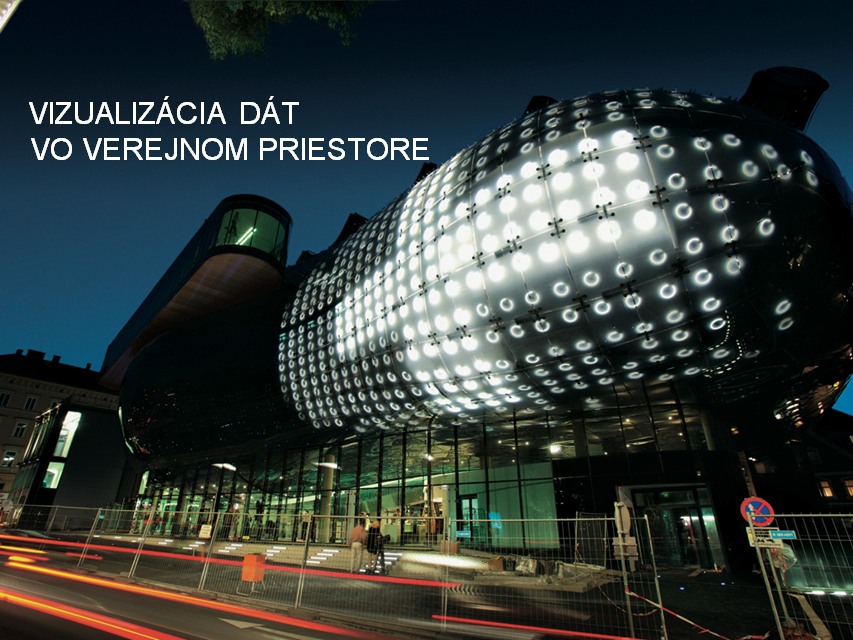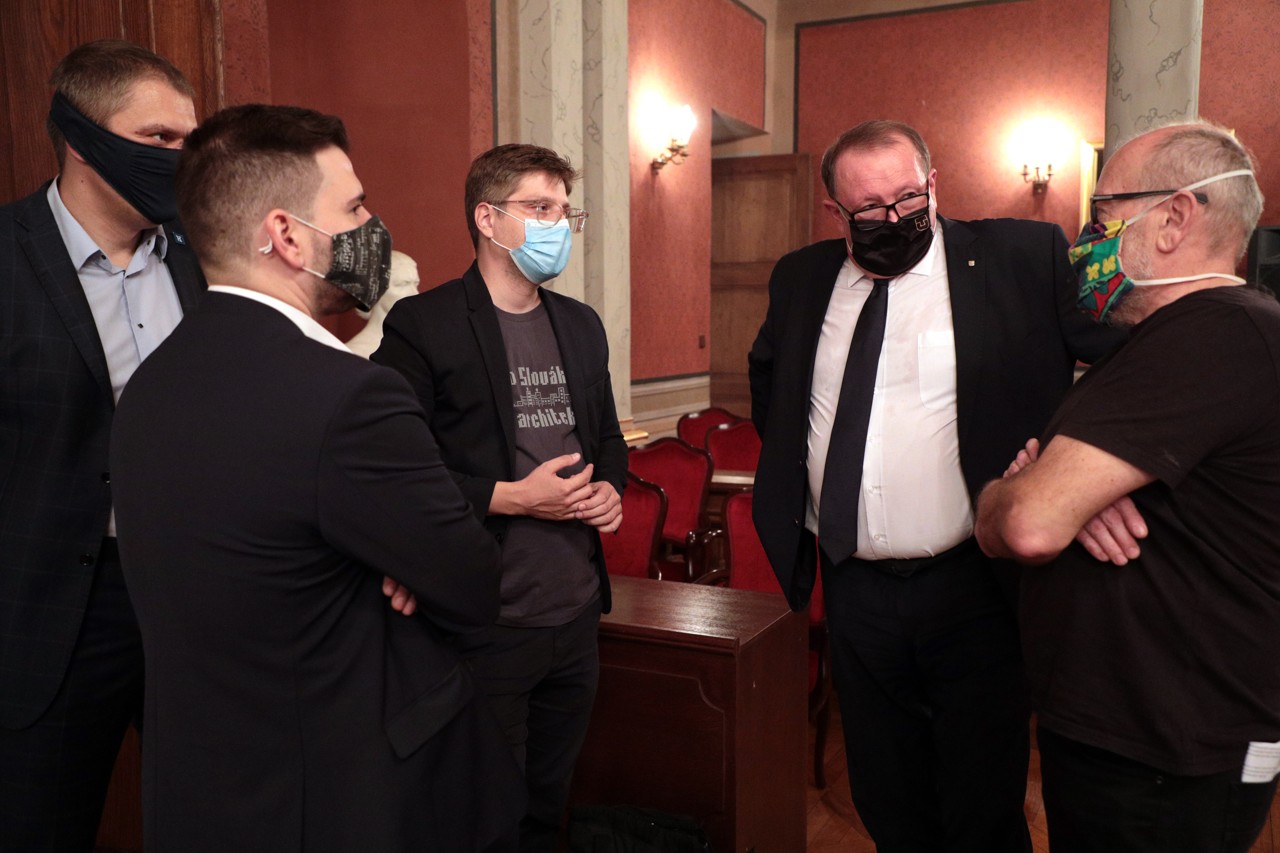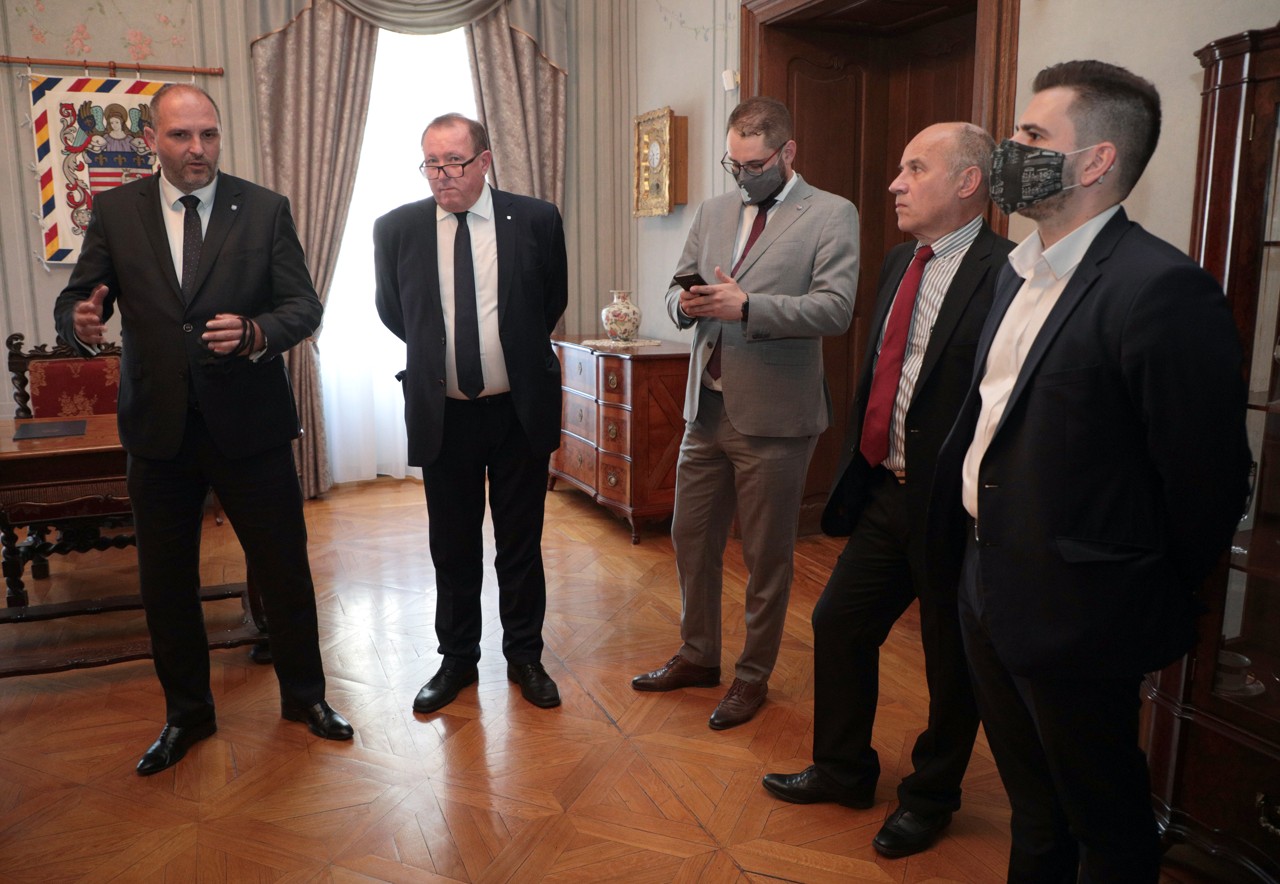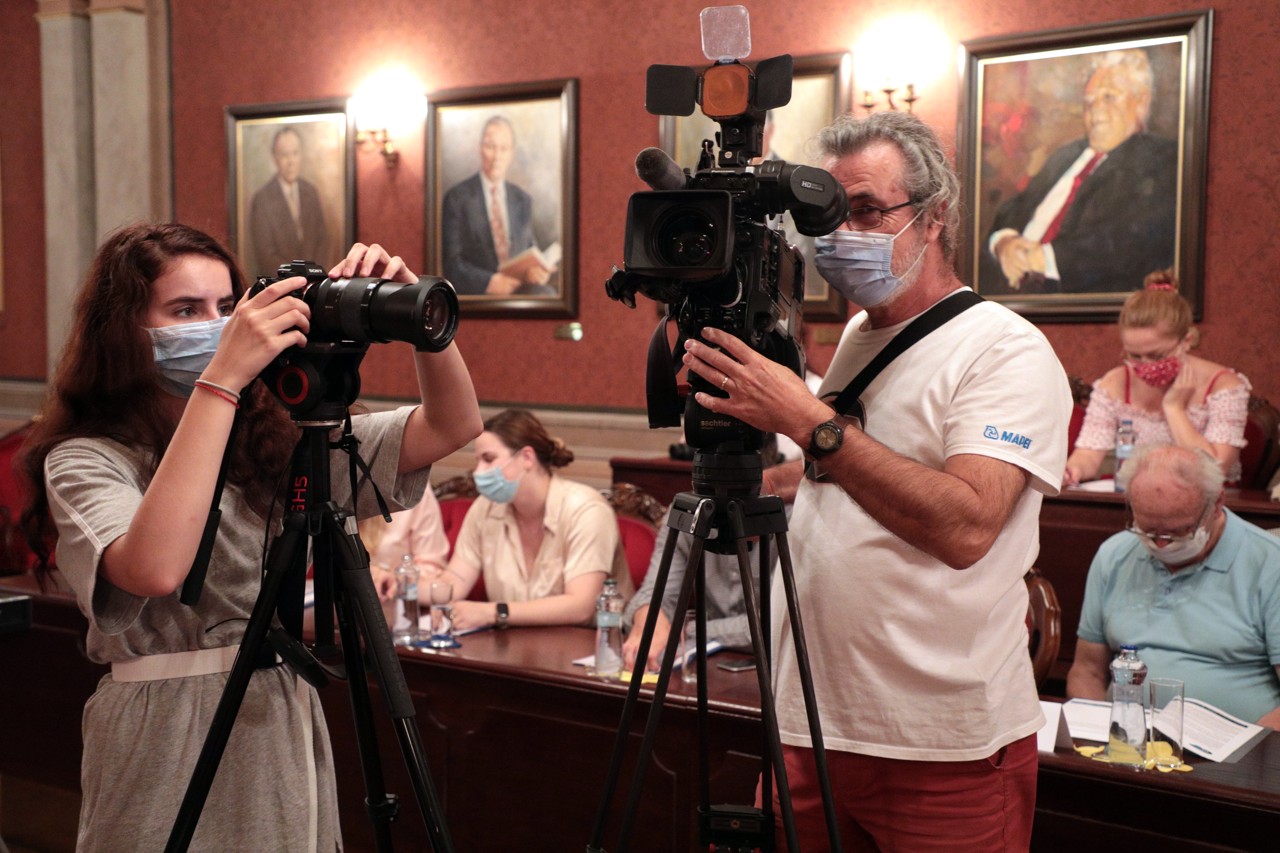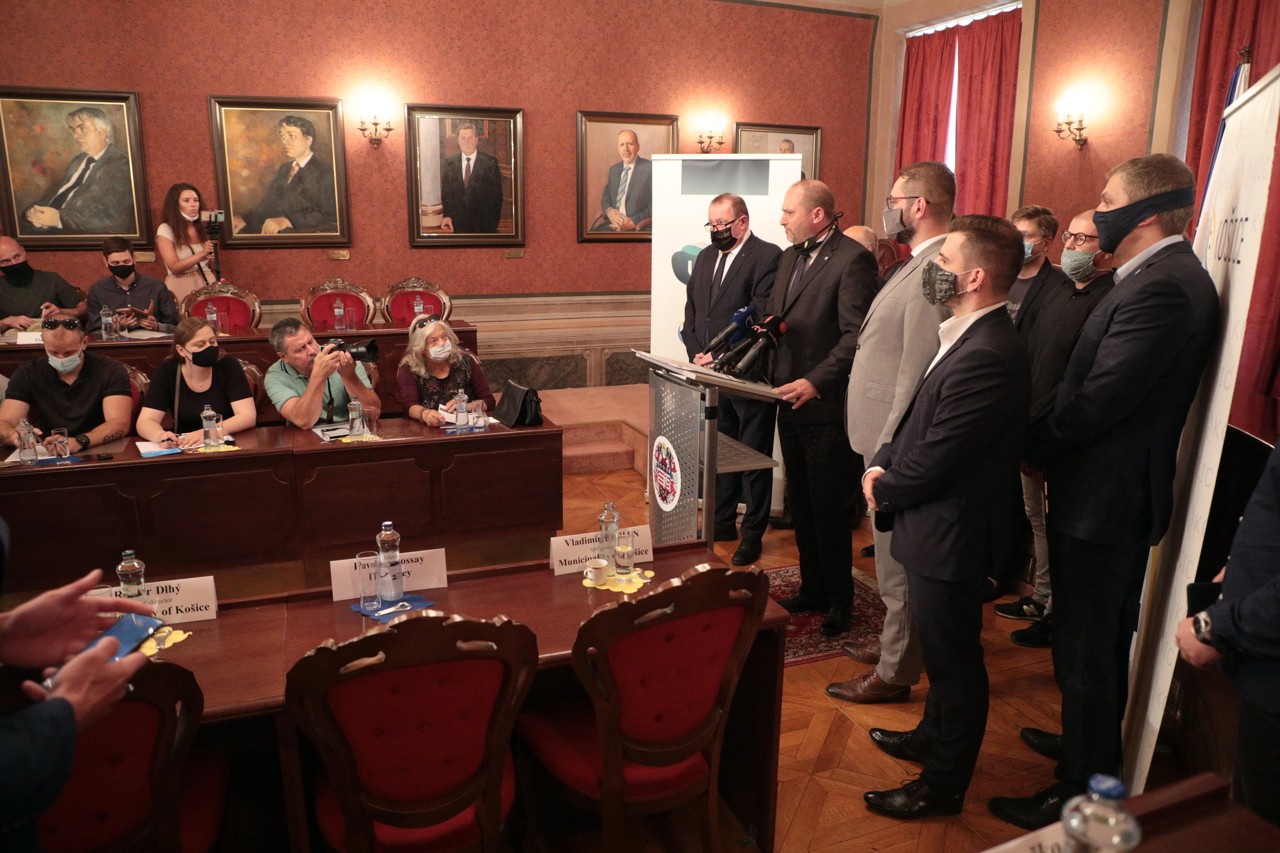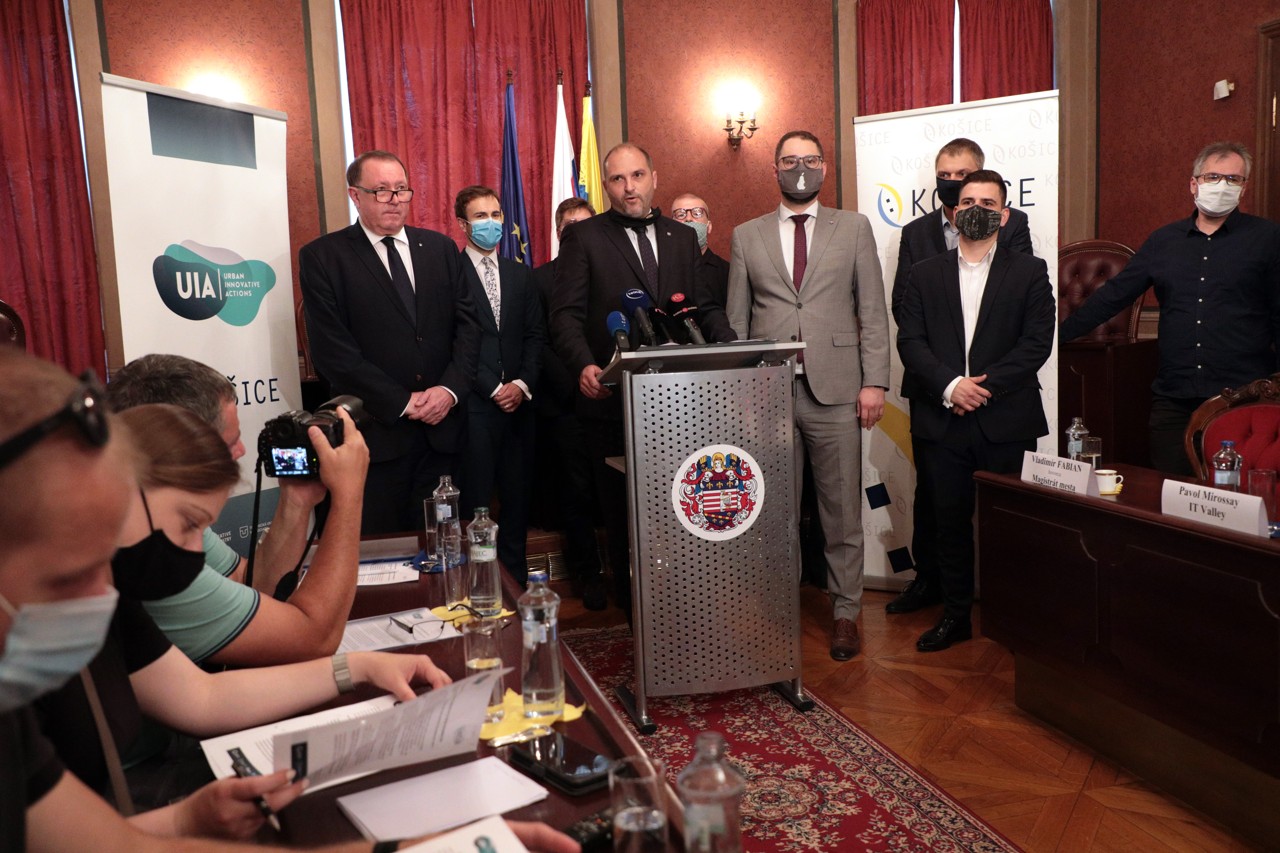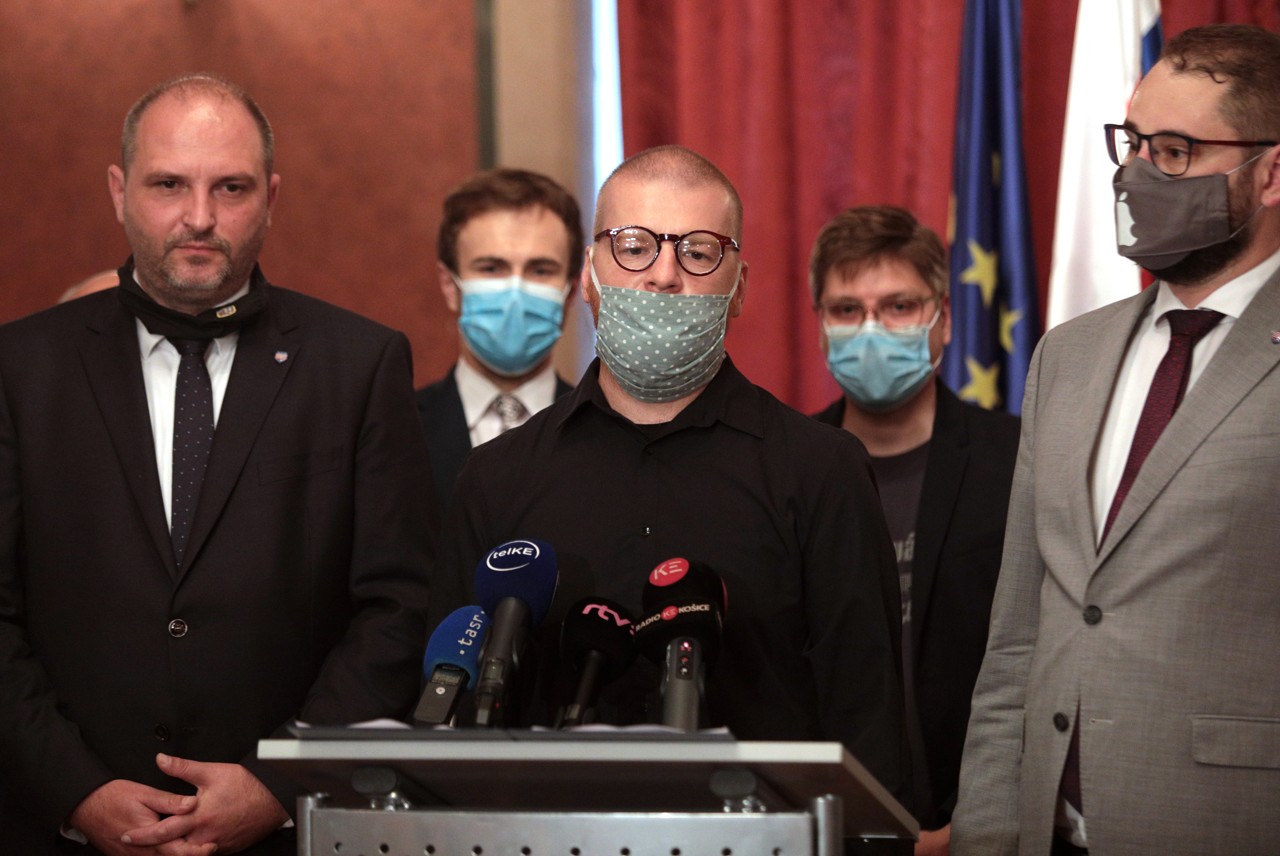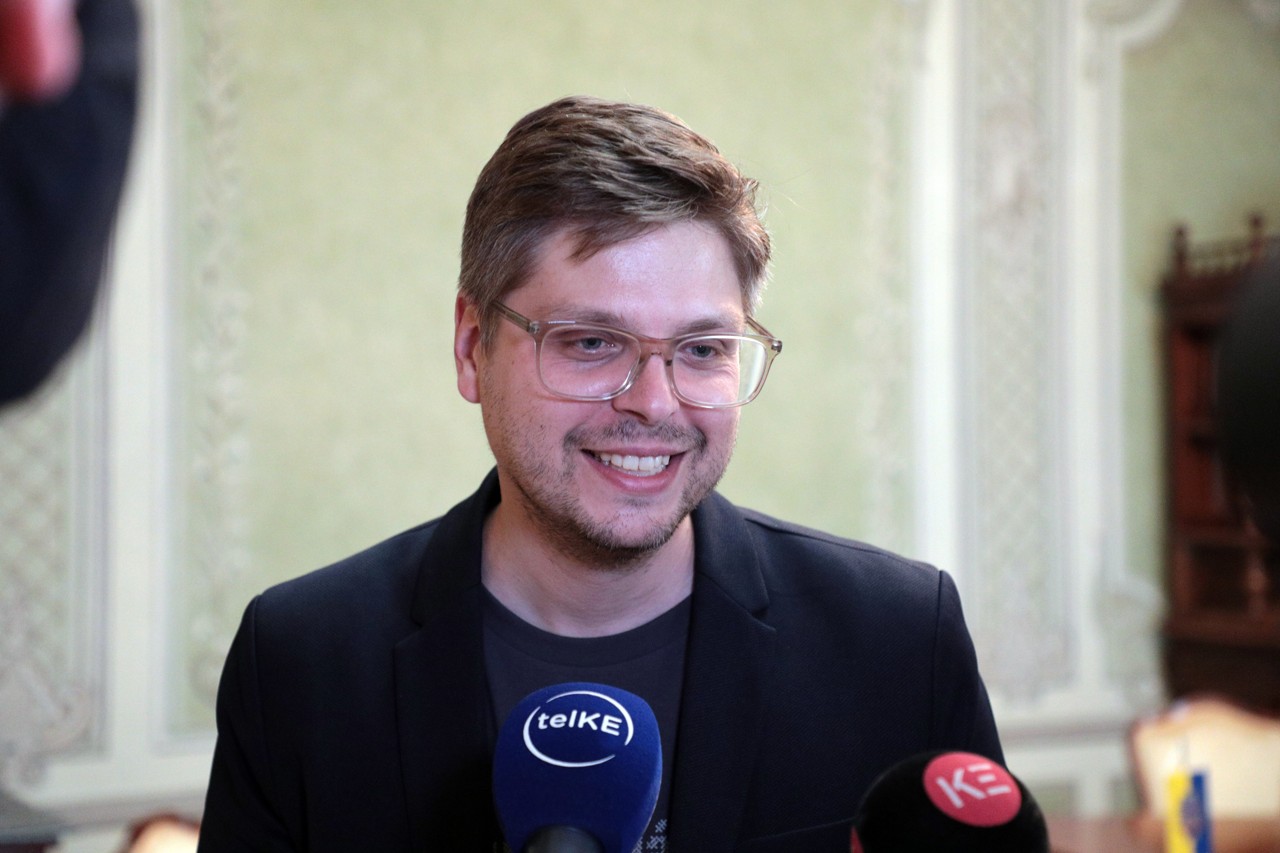Košice is the first city in Slovakia to succeed in the appeal from the European Commission (EC) and the Hauts-de-France region for grant applications in the Urban Innovative Actions (UIA) programme. A grant amounting to 4 562 859 euros is available for building infrastructure supporting innovation and reinforcing the business environment, a project which will be financed up to 80 % by the European Fund for Regional Development (ERDF), and the remaining 20 % percent coming from co-financing by partners of the project.
Financial resources from this grant may be used for supporting cultural activity and heritage, improving the environment including air quality, dealing with demographic changes and enhancing the quality of life, all by means of increasing production efficiency. The City and its partners will be able to draw on these funds once the EC gives its approval, depending on the results of the audit to be carried out in Košice by its inspectors in the autumn of this year. Information about current developments regarding the whole project will be provided on a dedicated website which the City will be launching in due course. Košice City Mayor Jaroslav Polaček is pleased that our city has succeeded in the face of great competition. For him this is proof that we have top-quality people here in Košice, whose work he greatly appreciates.
“I'm really pleased that they've put together a project which places our city up there among the best in Europe,” says Mayor Polaček. “In this way, in the coming years we are going to take our place among the privileged cities which can make use of this programme to improve the quality of life and the environment for all of their citizens. Based on the data we obtain, we'll be able to determine which aspects of city life are in greatest need of meaningful investment. We have a unique opportunity now to make use of the financial resources we obtain to turn some bold, innovative ideas into reality. We're going to transform some traditional ideas into new, creative and ambitious projects. Our general aim is to make Košice people happy that they can live in this city of ours, so they can love the city more than ever. This initiative for innovative urban measures will help us considerably in doing so, because we're all going to benefit from it. Let's keep our fingers crossed that the various one-of-a-kind projects and improvements which we'll be able to carry out in the coming years based on our analyses will make our city a leader in urban innovation in Europe,” Mayor Polaček concludes.
Between 2014 and 2020 the UIA initiative issued five appeals, and out of a total number of 222 grant applications from 23 EU countries, 86 projects were successful. In the closing phase of this programme fortune favoured the projects from just 11 cities. Apart from Košice, whose KSCreativity4WB project attracted interest, there were three Belgian cities (Brussels, Ghent and Leiedal), two Italian cities (Ferrara and Verona), Sofia in Bulgaria, Halandri in Greece, Budapest in Hungary, Tilburg in the Netherlands and Almeria in Spain.
This is another in a series of important awards for the city of Košice. In 2013 Košice was the first to represent Slovakia in gaining the title of European Capital of Culture. Three years later we were the European City of Sport. In the past year the metropolis of the east became the European Capital of Volunteering. What is more, in 2017 Košice was the first Slovakian city to get a place in the network of UNESCO's Creative Cities, and right now we are aiming to win the title of European Green City 2023.
The effort towards innovation for the cities of tomorrow will form part of the European Innovation Initiative in the years 2021 – 2027. The successful creators of the Košice project KSCreativity4WB came up with the innovative idea of setting up an agency for gathering and processing relevant data obtained from the public with the aim of improving local government decision-making, improving residents' living standard, and renewing their trust in public institutions.
This is what the newly-established Citizens' Experience and Well-being Institute (CXI) is all about. This is where the acquired data will be gathered and processed, and then be published and made available to public institutions and citizens in general. For the purpose of data collection we are setting up a Mobile Urban Laboratory, which will make use of multi-media installations to prepare visualizations of various kinds of information. Citizens will be able to use this Laboratory to engage in defining problems in the city which bother them. Another feature of the project will involve creation of an Urban Innovation Sphere, where start-up companies, traditional industrial branches and sole traders will be able to play their part in resolving common challenges.
Deputy Mayor of Košice Marcel Gibóda adds that one of the City's priorities is to use European funds to enhance conditions and the appearance of various localities, to improve transport infrastructure, and enable people to make use of alternative energy sources to a much greater extent than to date.
“The ambition of the KSCreativity4WB project is to bring in innovative, effective solutions for various aspects of public life, based primarily on citizens' requirements and data obtained regarding their preferences. This project is closely linked with our effort to gain the title of European Green City 2023. Our success in carrying out these strategic steps is the precondition for developing the future image of Košice as a city with strong potential for innovative socio-economic advances as well as rich cultural infrastructure. I'm really looking forward to being a part of all this,” says Deputy Mayor Gibóda.
The City of Košice is participating in this project together with eight partners: the Creative Industry Košice non-profit organization, K13 – Košice Culture Centres, Technical University of Košice, Východné pobrežie (Eastern Seaboard) civic association, Košice IT Valley Association, and commercial companies Antik Telecom, Civitta Slovakia and ASBIS SK. Their representatives see great opportunities in this project for developing the city in the coming years.
Michal Hladký (Director, Creative Industry Košice - CIKE): Our organization is the content leader for activities in this project. Our organization structure incorporates CXI, and we are going to set up the Mobile Urban Laboratory enabling us to obtain data at first hand in the public sphere, working with citizens and processing their suggestions. CIKE will play a role in creating media artworks in public spaces. We will also share in the preparation and running of the Urban Innovation Sphere hub, where we will make use of our experience in the fields of education, professionalization and involvement of sectors for innovation. We consider the most important aspect of this project to be its focus on people's well-being and quality of life, precisely by linking together digital technologies, art and creativity. This will lead us straight into fulfilling our mission in the network of UNESCO Creative Cities, where Košice has been a member of the Media Art cluster since 2017.
Tomáš Petraško (Director, K13 – Košice Culture Centres): Back at the end of last year when the project was being finalized ready for submission, we felt pretty sure of success. CXI is being set up in the Kasárne-Kulturpark (Barracks-Culturepark) premises, which is meant to be clearly linked up with other newly-established innovative spaces like the Hub, Fablab and various studios, primarily that is with people involved in the creative industry who will be working there. Our aim is to set up the most attractive co-working space in Slovakia, where young businesspeople will be able to get to grips with real problems in our city and come up with solutions that will benefit everybody. But we're not going to wait till the project itself starts being implemented, we're starting up just next month.
Oto Hudec (Vice-dean, Faculty of Economics, Technical University of Košice): Our university is constantly involved in the life and activities of this city. We are going to apply the knowledge and skills of our Faculty of Arts and Faculty of Economics in the creation of the Citizens' Experience and Well-being Institute. The unique linkage of processing and visualizing data on the city and its residents will support the natural involvement of citizens in decision-making about the city's advancement. At the same time it will enable the development of progressive education programmes promoting creative thinking for the professions of the future. Individual subjects in these programmes will focus on data gathered from citizens, new methods of gathering and processing data on the quality of life, as well as attractive visualization and presentation of such data. Another result will be the mutual interconnection of the aims of this project with those of UNESCO's Creative City of Media Art project.
Michal Hudák (Founder, Východné pobrežie civic association): Our organization named Východné pobrežie (Eastern Seaboard) focuses on long-term field research in urban issues, and we see an amazing opportunity in this UIA programme to foreground data, analyses and objective facts in the decision-making about the future shape and development of this city. We consider the form in which communication and information about various kinds of data will be delivered, as well as their comprehensibility and accessibility for all population groups, as equally important in the very least as the introduction of data gathering and analysis themselves.
Pavol Mirossay (CEO, Kosice IT Valley Association): For a long time now we have been striving to ensure that Košice is perceived as a modern IT city offering many opportunities for individuals as well as corporations. We are honoured to have the chance to be part of this excellent project, and as such we want to share our expertise in modernization of the open data field.
Peter Blaas (Development Manager, ANTIK Telecom): With our long-term experience as developers of technologies for intelligent cities around the world, we are delighted at having the opportunity to participate in this project in Košice, which can bring sorely needed innovation to our home town. As part of the project we would like to apply some advanced sensoric methods in the field of environmental quality monitoring. At the same time, by means of our interactive set-top boxes we will be able to support citizens' participation in developments in Košice.
Jozef Hegyi (Vice President, Visegrad region and company officer, Asbis SK): Apart from classical IT component distribution, we also have at our disposal an experienced team capable of delivering comprehensive bespoke solutions. Our task in the KSCreativity4WB project is to provide active support for project objectives precisely through our expertise and work in the field of digital technologies, IT and data solutions. We certainly see an extraordinarily interesting challenge in our involvement in technological support for the creation of media artworks, participation in setting up the Mobile Urban laboratory, and generally in working with artists and designers in the local environment.
Erika Horanská (Head of Urban Development Department, SR Ministry for Transport and Construction): Our Ministry appreciates the city of Košice's success in the Urban Innovative Actions programme. This grant scheme supports especially innovative solutions proposed by cities in field connected with the EU's Urban Agenda. Košice has gained support in the area of “culture and cultural heritage”, thus following on from previous activities, mainly the European Capital of Culture project implemented in 2013. This success proves that continuous work on the crucial theme of urban development is worth the effort and earns its own recognition.

